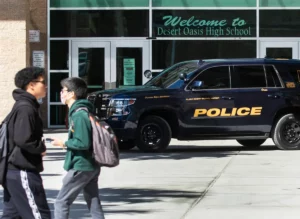 by Dick Hall-Sizemore
by Dick Hall-Sizemore
During the height of the war on drugs, schools adopted “zero-tolerance” policies. No student was allowed to possess any drug of any kind, even an aspirin or a prescription medication for which he had a prescription. Any such products had to be deposited with the school nurse and taken in the presence of the school nurse. This meant that a female student could not keep aspirin or Advil, for example, in her backpack to use to ease the pain of menstrual cramps. When the cramps became particularly bad, she had to go to the infirmary and retrieve her over-the-counter medications that she had left with the nurse.
Presumably, these policies were meant to show that the schools meant business when it came to drugs. I always thought it was a sign of cowardice. Schools and principals were not willing to use a little common sense and discretion. Rather than having to exercise some thought and judgment, they took the easy way—ban everything.
This still might the approach used. I don’t know.
One of our commentators, James Sherlock, wants to extend this “non-thinking” approach to school discipline. He blasts the General Assembly for giving school officials the discretion of reporting certain incidents to police. In his most recent article on the topic, he would “require principals to call the police in every case of battery.”
Virginia law defines “battery” as “touching someone without their consent.” The person touched does not have to experience any harm for the act to constitute battery. The only requirement is that the touching be intentional.
Do we really want principals required to report every battery to the police? Consider the following scenarios. During a football practice, the player carrying the ball feels that another player tackled him unnecessarily hard. He jumps up, yells at the one who tackled, pushing him in the process. Legally, that push is a “battery.” Should the coach report it to the principal, who would then report it to the police?
Another scenario: a boy suggests something especially lewd to a girl. Highly insulted, the girl slaps the boy. That’s a battery. Should the principal call in the police?
A final scenario: in a crowded hallway, a boy presses against a girl’s breasts. If it was intentional, that constitutes a battery. The girl claims it was intentional. The boy protests that it was not intentional; that he was pushed by the crowd in front of him. Should the principal report this incident to the police and let them sort it out?
Here is a scenario in the special education situation posed by Jim: a child in special education gets angry at another child and pushes that child down. When the teacher tries to correct the special education child, he hits the teacher on her arm. Should the teacher report these “batteries” to the principal who would then call in the police? Under the “Sherlock” rule, the answer would be “yes” in each scenario. I can think of numerous other such instances in which the police would have to be called.
Jim wants to institute this policy in order to “protect principals from retribution from communities or parents.” Hopefully, good judgment and common sense are two characteristics that superintendents and school boards look for in appointing a person as a school principal. Rather than giving principals the easy out in the way of an inflexible policy, we should give them the discretion to use their common sense and good judgment. If parents or the public are so obtuse that they don’t recognize the difference between battery that requires police intervention and that which is more appropriately dealt with by teachers and principals, it is the role of superintendents and school boards to provide support and protection.


